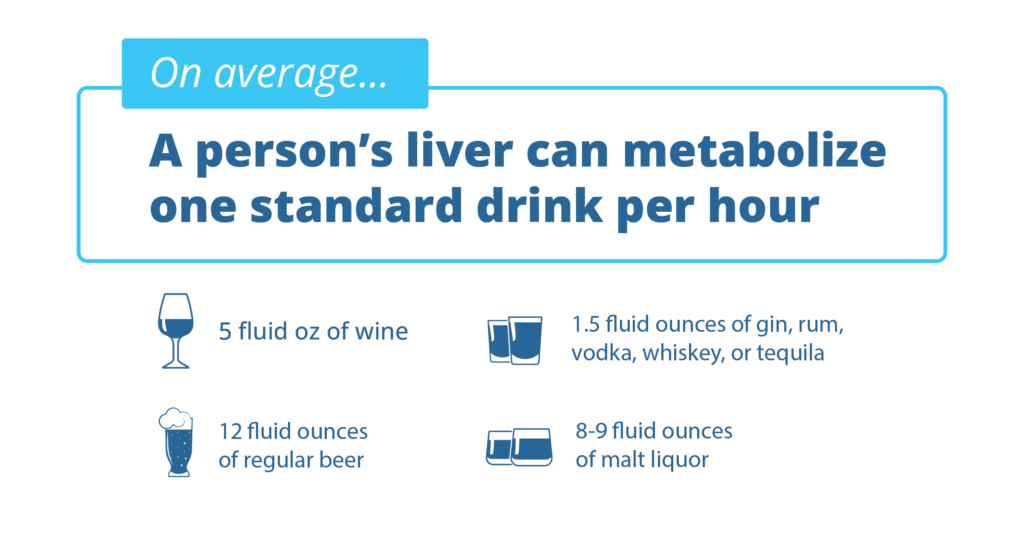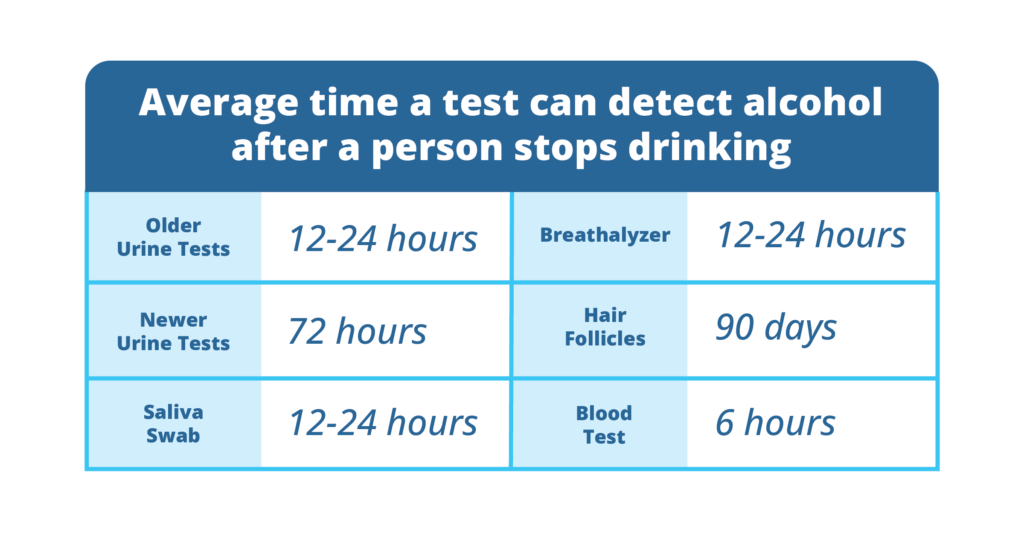Alcohol is a central nervous system depressant that is found in liquor and other beverages. Produced by the fermentation process of starches, sugars, and yeast, it is an intoxicant that can impact the body in a variety of ways. It generally has a short lifespan in the body and is metabolized at a rate of 15 milligrams per deciliter per hour.
The amount of alcohol you drink is just one of many factors that can influence how long alcohol will stay in your system. This also means that different people will feel its effects for longer periods of time than others.
The effects of alcohol are often directly proportional to a person’s blood alcohol concentration (BAC). This refers to the measurement of the amount of alcohol in a person’s blood in relation to the amount of water present in it.

Factors that Influence the Time It Takes to Process Alcohol
Different people react differently to alcohol. Even if two different people have a drink that contains the same amount of liquor, it can affect them in very different ways. When a person drinks, every organ in the body is affected because the small intestine and stomach absorb alcohol into the bloodstream.
The liver metabolizes alcohol, but it can only do so in small amounts at a time. The excess alcohol is left to circulate throughout the body while it “waits” to be metabolized. It is this excess that determines the intensity of the effects of alcohol. The more excess there is, the greater the effects of alcohol on the body.
Some of the factors that determine the extent to which people are affected by alcohol consumption include:
- The amount of alcohol consumed in a short period of time
- The health of the liver
- A person’s age
- A person’s weight
- A person’s gender
- Some medications
- The presence or absence of food in the stomach
It’s important to understand that alcohol itself is metabolized at a constant rate, but the blood alcohol concentration and the duration of the effects of alcohol are what vary among people.
How Long Does It Take for the Effects of Alcohol to Kick in?
In general, it takes from 15 to 45 minutes for a healthy person to begin to feel the effects of alcohol. Characteristics of intoxication can become noticeable when their BAC reaches 0.05%. At 0.07%, a person’s ability to drive will be severely impaired, and at 0.1%, the person will clearly be intoxicated.
The higher someone’s BAC is, the more likely they are to display signs of intoxication or alcohol abuse. These signs can include:
- Confusion
- Slurred speech
- Trouble with memory
- Lowered inhibitions and increased risky behavior
- Impaired coordination
- Breathing problems
- Vomiting
- Loss of consciousness
A person who weighs 150 pounds will generally reach a blood alcohol concentration of 0.1% if they consume four standard alcoholic drinks in one hour.
What Is Considered to Be a Standard Alcoholic Drink?
On average, a person’s liver can metabolize one standard drink per hour, or about 0.015g/100mL/hour. A standard drink is defined as:
- 5 fluid ounces of wine
- 1.5 fluid ounces of gin, rum, vodka, whiskey, or tequila
- 12 fluid ounces of regular beer
- 8-9 fluid ounces of malt liquor
When much more than one standard drink per hour is consumed, it can become dangerous. An alcohol overdose or alcohol poisoning can cause life-supporting functions to become dangerously slow or even shut down.
Binge Drinking
Binge drinking is a form of alcohol abuse (and is also considered to be a form of substance abuse). When a person binge drinks, they consume an excessive amount of alcohol in a short amount of time.
Specifically, according to the National Institute on Alcohol Abuse and Alcoholism (NIAAA), binge drinking is when a person drinks to a BAC of 0.08% or higher. Typical adults would reach this level when consuming 4-5 drinks in about two hours.
The Substance Abuse and Mental Health Services Administration (SAMHSA) defines binge drinking as consuming four drinks on the same occasion for females or five for males. An occasion is defined as during one sitting or within two hours.
Heavy Alcohol Use
The SAMHSA defines heavy alcohol use as women drinking eight or more drinks per week and men having 15 or more drinks per week.
The NIAAA defines it as consuming more than four drinks on any day (or more than 14 drinks per week) for men or three drinks on any day (or more than seven drinks per week) for women.
Drinking in Moderation
In the Dietary Guidelines for Americans, 2020-2025, the U.S. Department of Health and Human Services defines drinking in moderation as limiting alcohol intake to two drinks per day or less for men and one drink per day for women.

How Long Can Tests Detect Alcohol?
There are different ways that alcohol can be detected in the body, including tests on urine, saliva, breath, hair, and blood.
The following are average guidelines for how long each type of test can detect alcohol after a person stops drinking.
- Older urine tests can detect alcohol for 12-24 hours after drinking
- Newer urine tests can detect alcohol 72 hours after the last drink
- A saliva swab can detect it for 12-24 hours after drinking stops
- A breathalyzer can detect alcohol for 12-24 hours after the last drink
- A test on hair follicles can detect alcohol for up to 90 days after the last drink
- A blood test detects alcohol for up to six hours after drinking alcohol stops
Some people mistakenly think that drinking water or coffee will help sober them up faster. These actions might help make a person more alert, but they will not help eliminate or process alcohol faster.
Proven Alcohol Addiction Recovery at The Haven Detox
For evidence-based alcohol addiction treatment in West Palm Beach that works, reach out to our friendly team. Getting help in a supportive, state-of-the-art environment can make all of the difference in your detox and recovery. Reach out to The Haven Detox now; we’re here for you 24/7.






